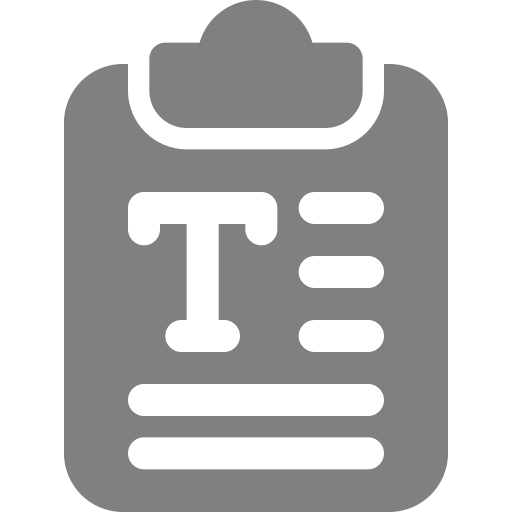LSAT
The LSAT or the Law School Admission Test is an entrance exam required for admission to most law schools. It is a multiple-choice paper-and-pencil test that is administered by the Law School Admission Council (LSAC).
The LSAT or the Law School Admission Test is an entrance exam required for admission to most law schools. It is a multiple-choice paper-and-pencil test that is administered by the Law School Admission Council (LSAC).
 About Exam
About ExamLaw School Admission Test (LSAT) is a law admission test operated each year at the appointed test centers throughout the world. LSAT is operated by Law School Admission Council (LSAC) for interested law school candidates.
LSAT is designed to assess reading comprehension, logical, and verbal reasoning proficiency. This law test is an essential part of the law school admission process in the United States, Canada (common law programs only), the University of Melbourne, Australia and a growing number of other countries.
 Eligibility
EligibilityFor LSAT Exam, there is no certain eligibility is prescribed via the LSAC. But, eligibility criteria vary from institution to organization. Applicants can check the eligibility of the institution in which they want to get admission. Beneath we are mentioning a few basic eligibilities for law courses:
 Application Fees
Application FeesThe application fee details for LSAT exam are given below:
 Application Procedure
Application ProcedureApplication procedure for the exam of LSAT can be seen below:
 Exam Pattern
Exam PatternExam pattern for the exam of LSAT can be seen below:
| Section | No. of Questions | Timing |
| Analytical Reasoning | Approx 24 | 35 minutes |
| 1st Logical Reasoning | Approx 24 | 35 minutes |
| 2nd Logical Reasoning | Approx 24 | 35 minutes |
| Reading Comprehension | Approx 24 | 35 minutes |
| Total92- 100 questions | 2 Hours | 20 Minutes |
 Study Material
Study MaterialSome reference books for the LSAT exam are as follows:
 Courses Under Exam
Courses Under ExamLSAT exam is conducted for admissions in various graduate and post-graduate law courses like:
 Test Centres
Test Centres Some of the test centers for the exam of LSAT are as follows:
 FAQs
FAQsSome of the Frequently Asked Questions (FAQ's) related to the exam of LSAT are as follows:
Q: Can I get the application form through offline mode?
Ans: No.
Q: After submission of application, am I permitted to change the examination city?
Ans: No.
Q: Is there any concession in application fee for SC/ST candidates?
Ans: No. The application fee is the same for candidates of all category.
Q: What is the mode of submission of application form?
Ans: Application form can be submitted through online mode only.
Q: Can a candidate use the LSAT India score to apply to law colleges outside India?
Ans: No, the LSAT India is designed for use by law colleges in India.
Q: If a candidate has an LSAT score, can he/she use it to apply to a law school in India?
Ans: LSAT scores cannot be substituted for LSAT India scores for admission to law colleges in India.
Q: Are there any sectional cut-offs?
Ans: No.
 Syllabus
SyllabusThe syllabus for the exam of LSAT can be seen below:
LSAT Syllabus for Reading Comprehension:
This section measures a candidates ability to read, understand and give insights into passages. The questions asked in the passage will be related to the following characteristics:
LSAT Syllabus for Analytical Reasoning:
This section checks the ability to understand the structure of relationships and to draw logical conclusions for those structures. Analytical Reasoning questions test a range of reasoning skills which includes:
LSAT Syllabus for Logical Reasoning:
This section will assess a candidates ability to analyze, critically evaluate, and complete arguments as they occur in ordinary language. The questions are designed to assess a wide range of skills involved in thinking critically, with an emphasis on skills that are central to legal reasoning such as:
 Cut-Offs
Cut-OffsLSAT India cut-off is on the basis of the following factors:
 Documents to be Carried
Documents to be CarriedThe important documents to be carried for the exam of LSAT are as follows:
 Intakes
IntakesLSAT India is conducted across 20 test cities in India. The number of colleges accepting LSAT India was limited to 50 till 2014. In 2015, 10 colleges were added to the list and in 2016 this number was further increased to 74. On the basis of LSAT India 2017 scores more than 76 colleges offered admission to candidates in under-graduate as well as post-graduate law programmes. In 2018 more than 85 law schools have started accepting LSAT India scores for admission.
 Important Dates
Important DatesHere candidates can check the important dates for LSAT exam:
| Events | Dates |
| Issue of Notification | October 4, 2018 |
| Commencement of Registration for LSAT India | October 15, 2018 |
| End of Registration for LSAT India | May 15, 2019 |
| Commencement of Application Form | October 15, 2018 |
| End of Application Form | May 15, 2019 |
| Fee payment for LSAT India starts | October 15, 2018 |
| Fee payment for LSAT India ends | May 15, 2019 |
| Issue of Admit card | May 18-25, 2019 |
| LSAT India 2019 exam | May 26, 2019 |
| LSAT India Result | June 8, 2019 |
| LSAT India counseling | To be notified by different participating institutes* |
*Tentative date; Subject to change